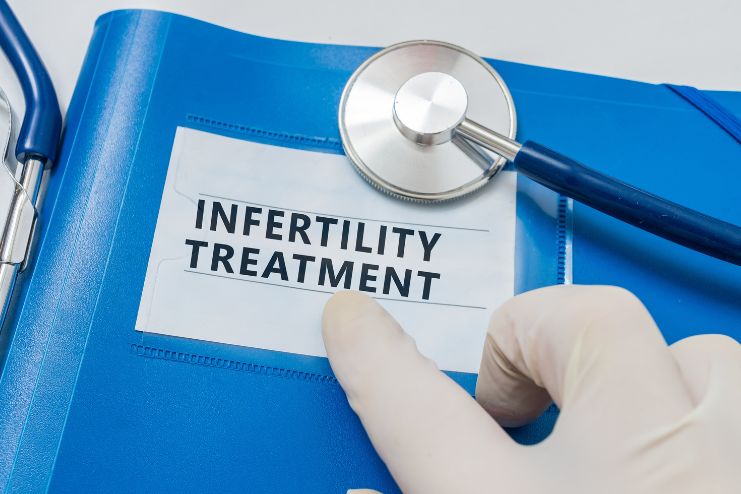One in every six couples faces infertility—are you at risk?
Infertility, which affects both men and women equally, is more common than most people realize. It is defined as the inability to conceive after one year of unprotected sex. This condition presents not only medical challenges but emotional ones as well.
Understanding the risk factors that contribute to infertility is the first step in safeguarding your reproductive health. A wide range of factors—from age and lifestyle choices to underlying medical conditions—can subtly impair your ability to conceive.
The good news? Many of these risks can be mitigated or even eliminated through early awareness and appropriate action. By recognizing warning signs and making informed lifestyle or medical decisions, couples can significantly enhance their chances of conception. Whether you’re planning for the future or actively trying to conceive, knowing what to look out for can empower you to take control of your fertility journey.
Read More: Understanding Hormonal Imbalance and Its Impact on Fertility
Causes of Infertility
Infertility refers to the inability to achieve pregnancy after 12 months of regular, unprotected intercourse. This condition affects both sexes and can be due to a variety of causes.
Male Infertility Causes
1. Sperm Production or Quality Issues:
Conditions like undescended testicles, genetic defects, hormonal imbalances, diabetes, and infections such as chlamydia, gonorrhea, mumps, or HIV can impair sperm quality. Varicocele—enlarged veins in the scrotum—is another common cause.
2. Sperm Delivery Problems:
Blockages in the reproductive tract, ejaculation issues, and conditions like cystic fibrosis can prevent sperm from reaching the egg.
3. Environmental Factors:
Exposure to radiation, pesticides, and industrial chemicals can affect fertility. Certain medications (e.g., for depression, high blood pressure) and overheating from saunas or hot tubs also reduce sperm production.
Female Infertility Causes
1. Ovulation Disorders:
Conditions like polycystic ovary syndrome (PCOS), elevated prolactin levels, and thyroid imbalances (hyperthyroidism or hypothyroidism) can disrupt ovulation. Tumors, eating disorders, and excessive exercise are also contributing factors.
2. Fallopian Tube Damage:
Blocked or damaged tubes due to pelvic inflammatory disease (PID), salpingitis, or previous surgeries can prevent sperm from meeting the egg.
3. Endometriosis:
When uterine-like tissue grows outside the uterus, it can impair the function of reproductive organs.
4. Pelvic Adhesions:
Scar tissue from surgeries or infections can cause organs to stick together, interfering with fertility.
5. Cancer Treatments:
Chemotherapy, radiation, and surgeries affecting the reproductive organs can compromise fertility.
Read More: Chemical Pollutants In Home Can Alter Fertility In Men And Dogs, New Study Suggest
Risk Factors of Infertility You Shouldn’t Ignore

Modern lifestyles often contribute significantly to infertility. Here are some warning signs and risk factors to be aware of:
1. Changes in Your Menstrual Cycle
Irregular periods, unusually heavy flow, or missed periods can signal fertility issues. Tracking your menstrual cycle can help identify abnormalities early and provide useful information to healthcare providers.
2. Sudden, Severe Acne
Unexpected acne in adulthood may suggest hormonal imbalances like PCOS, which can interfere with ovulation and fertility.
3. Missed Periods
Occasional missed periods due to stress or exercise are normal. However, missing periods for more than three months may indicate you’re not ovulating, significantly reducing your chances of conception.
4. Hormonal Imbalances
Hormones regulate ovulation, uterine lining development, and implantation. Disruptions due to thyroid issues, stress, or other conditions can impair fertility.
Read More: Know The Infertility Causes And Treatments
5. Excessive Hair Growth or Hair Loss
Hair growth in unusual areas (face, chest, back) may be a sign of excess androgens from PCOS. Hair thinning or loss may suggest thyroid issues, autoimmune disorders, or anemia—all linked to infertility.
6. Sudden Weight Gain
Unexplained weight gain without changes in diet or activity, especially in women with PCOS, can reduce fertility. Both obesity and being underweight negatively impact reproductive health.
7. Painful or Heavy Periods
While mild cramps are common, severe pain, nausea, or vomiting could point to endometriosis, fibroids, or PID. Prolonged bleeding or large clots should also be evaluated.
Read More: Breaking Taboos: Candid Conversations About Women’s Sexual Health
How to Reduce Your Infertility Risks Naturally

Your reproductive health reflects your overall well-being. Here are some evidence-based tips to support fertility:
- Maintain a Healthy Weight: Both underweight and overweight conditions can disrupt hormone levels and ovulation.
- Stay Active: Regular physical activity supports hormonal balance. Include strength training as you age, but avoid over-exercising, especially running more than 6–10 km per day.
- Avoid Smoking: Smoking affects egg and sperm quality and leads to earlier menopause.
- Limit Alcohol: Alcohol impairs fertility by affecting hormone levels and implantation. No safe level has been established.
- Manage Stress: Chronic stress impairs reproductive hormones. Practice yoga, meditation, or get regular massages to improve your well-being.
- Understand Your Cycle: Monitoring ovulation can enhance the timing of intercourse for conception.
- Improve Sleep Hygiene: Melatonin production is linked to reproductive health. Avoid screens before bedtime to optimize hormone balance.
When to Seek Medical Help for Any Fertility Issues

If you’ve been trying to conceive for 12 months (or six months if over 35), consult a healthcare provider. Persistent infertility may point to underlying issues requiring professional treatment.
Initial evaluations typically involve both partners and may include:
- Hormonal assessments
- Ovulation tracking
- Imaging tests (e.g., pelvic ultrasound)
- Semen analysis
Based on the diagnosis, treatment options may include lifestyle changes, fertility medications, or assisted reproductive technologies like in-vitro fertilization (IVF).
Prompt evaluation increases the chance of successful treatment, especially as fertility naturally declines with age. Early action offers more options and peace of mind.
Read More: Fibroids vs. Ovarian Cysts: Know the Difference
Conclusion
Fertility is deeply connected to lifestyle, health, and awareness—not just luck. Understanding and addressing risk factors is crucial for protecting your reproductive future.
Even small changes—quitting smoking, reducing stress, managing weight, and seeing a doctor early—can make a big difference. Don’t wait for issues to become severe. Medical professionals can help uncover root causes and offer effective treatment plans.
Remember, fertility is a shared responsibility between partners. By staying informed and proactive, you increase your chances of building a healthy family.
-
Jan 2016Written by Shaveta Kandhari
-
June 2025Edited by Ankita
References
- https://www.mayoclinic.org/diseases-conditions/infertility/symptoms-causes/syc-20354317
- https://www.hopkinsmedicine.org/health/conditions-and-diseases/infertility-risk-factors-for-men-and-women
- https://www.nhs.uk/conditions/infertility/
- https://www.nhs.uk/conditions/infertility/causes/
- https://www.medicalnewstoday.com/articles/165748
- https://carolinasfertilityinstitute.com/warning-signs-infertility/
- https://www.parents.com/getting-pregnant/fertility/5-infertility-symptoms-you-should-never-ignore/
- https://roshmfm.com/10-potential-signs-of-infertility-you-shouldnt-ignore/
- https://www.ucsfhealth.org/education/reducing-your-risk-of-infertility
- https://www.ohioreproductivemedicine.com/fertility-treatments/lifestyle-changes-to-improve-fertility/
- https://www.mayoclinic.org/healthy-lifestyle/getting-pregnant/in-depth/female-fertility/art-20045887
- https://www.healthline.com/nutrition/16-fertility-tips-to-get-pregnant#antioxidants
In this Article




















